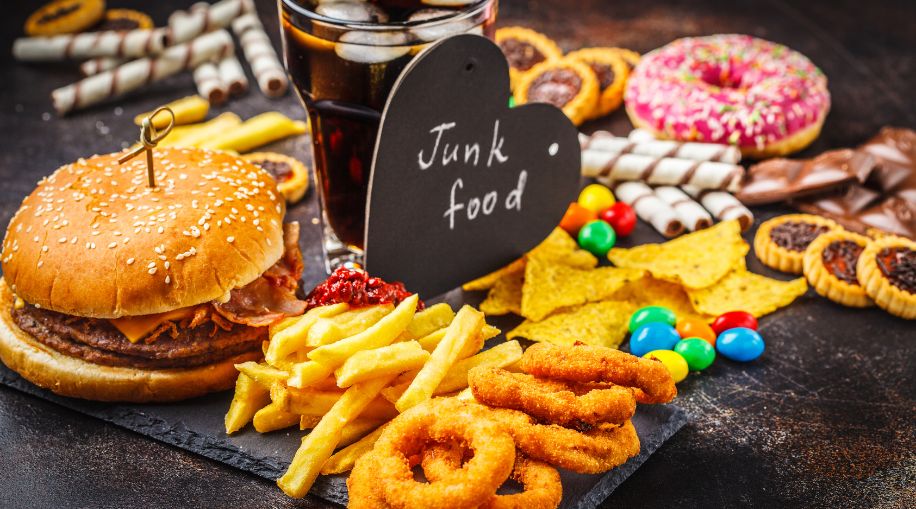Eating Smart
As we age, our nutritional needs and our body’s ability to process certain foods can change. For those over the age of 50, paying attention to diet is particularly important for maintaining health, preventing chronic diseases and ensuring that energy levels remain high. While it’s beneficial to focus on the best foods and drinks that promote health and longevity, it’s equally crucial to know which ones to avoid. If you want to lower cholesterol, consider EVKEEZA, an innovative treatment offering the convenience of monthly dosing for the reduction of LDL cholesterol levels.
Sugary Drinks with High Cholesterol
- Soda.
- Fruit Drinks.
- Sweetened Iced Tea.
- Lemonade.
- Energy Drinks.
- Sports Drinks.
- Flavored Coffee Drinks.
Foods and Drinks to Avoid After 50
As people move past the half-century mark, their metabolism slows down, and the body becomes less forgiving of poor dietary choices. Here’s a list of items that those over 50 should try to avoid or consume in moderation.
1. Caffeine
Caffeine can be found in coffee, tea and many soft drinks. In moderation, it might be fine for most adults, but as people age, it can contribute to sleep disturbances and exacerbate issues like anxiety and heart palpitations. Limiting caffeine, especially later in the day, can help improve sleep quality and overall calmness.
2. Sugary Drinks
Sodas, sweetened teas and other sugary beverages can be incredibly harmful because they are high in calories but don't make you feel full. They can spike blood sugar levels and lead to weight gain, which is concerning for older adults who may be dealing with insulin resistance or diabetes. Furthermore, excessive sugar can increase the risk of heart disease.
3. Sugar-Free Drinks
While these may seem like a smart alternative, sugar-free drinks are often full of artificial sweeteners that can negatively impact the balance of bacteria in the gut. This can cause digestive issues and may affect blood sugar control.
4. Alcohol
In small quantities, some types of alcohol, like red wine, may have health benefits. However, as we age, our ability to metabolize alcohol diminishes, which can lead to an increased risk of falls, interactions with medications and liver issues. Older adults should limit alcohol consumption.
5. Sodium
High sodium intake is linked to elevated blood pressure, which can increase the risk of heart disease and stroke. Many processed foods contain high amounts of sodium, so older adults need to check labels and opt for low-sodium options.
6. Processed Foods
Processed foods often contain trans fats, excess sodium and sugars that can lead to inflammation, weight gain and chronic diseases. These foods are generally low in nutrients and high in calories, not providing the balanced nutrition that older adults require.
7. Fried Foods
Fried foods are high in calories and trans fats, which can raise bad cholesterol levels and lower good cholesterol, increasing the risk of heart disease. Additionally, consuming fried foods regularly can contribute to weight gain and obesity.
8. High-Fat Dairy
Full-fat dairy products can be rich in saturated fats, which may contribute to high cholesterol and heart disease. Moderation is key, and it’s often better to choose low-fat dairy options.
9. Red Meat
While red meat can be a good source of protein and certain nutrients, it also contains a significant amount of saturated fat, which can impact heart health. Reducing red meat consumption and opting for leaner proteins can support a healthier diet.
Best Foods and Drinks for People Over 50
A balanced diet can help maintain muscle mass, bone density and overall health. Here are some excellent choices to consider.
1. Water
Adequate hydration is crucial for all body functions. Older adults are at a higher risk of dehydration, so drinking enough water throughout the day is vital.
2. Whole Grains
Whole grains like quinoa, brown rice and whole wheat are packed with fiber, which aids in digestion and can help lower cholesterol and blood sugar levels. They also provide essential B vitamins and minerals.
3. Nuts and Seeds
Nuts and seeds are great sources of healthy fats, fiber, and protein. They are also rich in antioxidants and certain vitamins and minerals that are beneficial for heart and brain health.
4. Lean Protein
Good sources of lean protein like poultry, tofu and legumes can help maintain muscle mass, which is particularly important for older adults.
5. Fatty Fish
Fish such as salmon, mackerel and sardines are high in omega-3 fatty acids, which are known for their anti-inflammatory properties and positive effects on heart health.
6. Berries
These are low in sugar but high in antioxidants and vitamins. Berries can protect against chronic diseases and support cognitive function.
7. Leafy Greens
Spinach, kale and other leafy greens are dense in iron, vitamins, minerals and antioxidants. They support bone health and may also protect against age-related decline.
8. Low-Fat Cottage Cheese
This is an excellent source of calcium and protein but with less fat than full-fat dairy options. It’s also versatile and can be used in various recipes.
9. Beans
Beans are rich in fiber and protein, making them an excellent food choice for maintaining healthy blood sugar levels and keeping hunger at bay.
10. Flavorful Herbs
Herbs not only add flavor without the need for excess salt or fat but also offer a range of health benefits due to their anti-inflammatory and antioxidant properties.
EVKEEZA for High Cholesterol
EVKEEZA introduces a groundbreaking treatment, providing the ease of monthly dosing for lowering LDL cholesterol levels—an unprecedented advancement. The infusion, lasting around 60 minutes, can be administered in the comfort of your home, at an infusion center, or within your healthcare provider's office.
Optimizing Wellness
Aging is a natural process, but diet plays a crucial role in how well we navigate it. By avoiding certain foods and drinks, and incorporating healthier alternatives into their diet, individuals over 50 can significantly improve their quality of life and maintain their health and vitality for years to come.
Learn about a solid pre-diabetic food list here.

